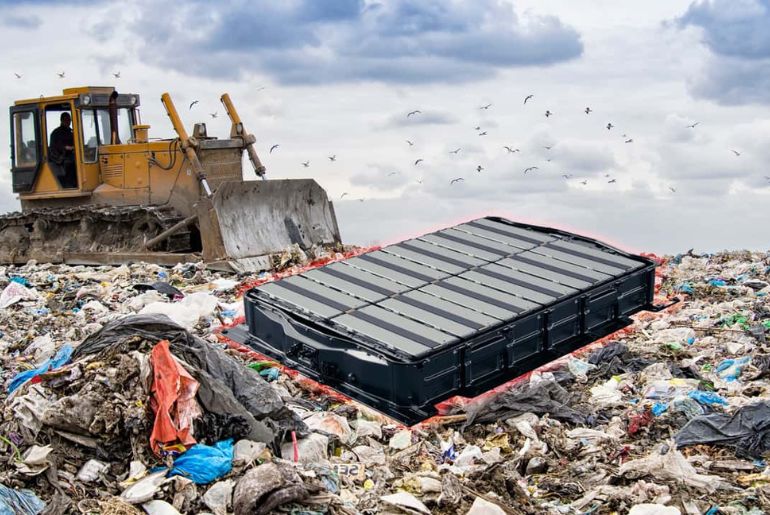Even if the car it comes in gets scrapped, your EV battery will likely live on.
One of the most frequent objections to EVs is: Isn’t that large, hazardous battery simply going to wind up in a landfill in a few years? Naturally, the answer is no. This is the reason.
- Many people worry that EV batteries will become e-waste, but that’s unlikely.
- EV batteries can last far longer than the average internal-combustion engine.
- Even after the vehicle itself leaves the road, the batteries will still be useful for grid storage and will be recyclable.
The first explanation is clear. These batteries have a longer lifespan than a few years. They have amply demonstrated their ability to outlast an automobile’s typical lifespan. It’s true that some firms experienced initial problems with their battery designs, but it’s rather simple to make high-quality packs on a regular basis once you get over that.
Manufacturers are also very motivated to make them durable. In the United States, EV batteries are required to have an eight-year and 100,000-mile warranty. Car manufacturers must overbuild their batteries to ensure their longevity since they cannot afford to have a large number of failures during the warranty period due to the high cost of battery replacements. You’ve won there.
However, EV batteries won’t wind up in landfills for a more significant reason. They are too precious. Even while an electric vehicle’s extremely high demand may force you to replace a battery pack that is only 70% full, that same battery will still be very helpful in other situations. Take today’s CleanTechnica example as evidence.
Francisco Shi, an Australian engineer, was interviewed by the site. At an old industrial facility, Shi has begun obtaining EV batteries from scrapyards and connecting them to an abandoned grid connection. When the sun is shining and grid costs are low, Shi can use solar panels and the grid to charge the batteries. During periods of high demand, Shi can then sell them back. The scrapyard benefits from being able to sell batteries to other customers who wish to do the same thing, Australia benefits from having its erratic power output curve smoothed down, and he benefits from making a few of grand per month.
This kind of system scaling is easy to envision. Our capacity to manufacture solar panels and, consequently, sustainable energy is continuously growing. However, we are already generating so much power that it cannot be used in the areas with the highest solar penetration and the sunniest conditions. To utilise renewable energy sources like solar and wind, the system, which was designed on reliable energy sources, requires a lot more storage.
It will achieve that with the aid of EV batteries. Everyone should pay less for electricity as a result, and carbon emissions should decrease significantly.
But even without those advantages, it’s useful to have a battery on hand. In an emergency, you can use it to power the house instead of a generator, and we’ve already seen how helpful that can be.
However, the battery won’t wind up in a landfill even if no one wants it. A global battery recycling supply chain is emerging because the basic materials within are much too precious to be thrown away. Although it’s not quite there yet—there are just not enough batteries being discarded at this time—many companies are attempting to determine the viability of recycling automobile packs on a broad scale.
The main idea is that battery waste shouldn’t be a major issue. Batteries are precious, and society is much less prone to waste them when they are valued.

